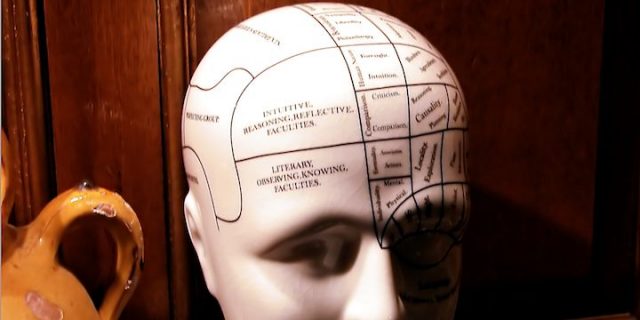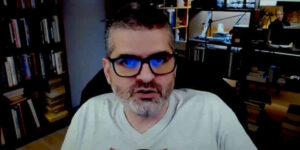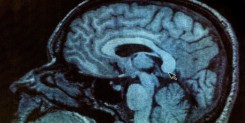“What is the silliest claim ever made? The competition is fierce, but I think the answer is easy. Some people have denied the existence of consciousness: conscious experience, the subjective character of experience, the “what-it-is-like” of experience. Next to this denial — I’ll call it “the Denial” — every known religious belief is only a little less sensible than the belief that grass is green.”
Galen Strawson, Professor of Philosophy at University of Texas.
Strawson goes on to say:
“One of the strangest things the Deniers say is that although it seems that there is conscious experience, there isn’t really any conscious experience: the seeming is, in fact, an illusion.”
“Anyone who has ever seen or heard or smelled anything knows what it is; anyone who has ever been in pain, or felt hungry or hot or cold or remorseful, dismayed, uncertain, or sleepy, or has suddenly remembered a missed appointment. All these things involve what are sometimes called “qualia”—that is to say, different types or qualities of conscious experience. What I am calling the Denial is the denial that anyone has ever really had any of these experiences.”
Can we understand consciousness?
You’d think the answer is obvious. We understand what it is like to be conscious by experiencing it. I know what it feels like to be “me”. Denying that seems to be a philosophical black hole that leads nowhere and denies the obvious.
But it isn’t that simple of course. Many other philosophers disagree with Strawseon (just as others agree with him).
The arguments are very technical and I wouldn’t pretend to fully understand them. But the guts of it seems to be the view that:
- we can’t really understand something unless we can explain it scientifically,
- no-one can really define what consciousness is,
- nor can we scientifically test whether our experience of being conscious is “real”,
- so therefore it must be regarded as an illusion.
Understanding vs experience
Some say that scientific understanding is only secondary and external; personal experience is the only direct knowledge we have. After all, everything we know comes through our senses (except if you believe in divine revelation!).
Bertrand Russell: “We know nothing about the intrinsic quality of physical events, except when these are mental events that we directly experience.”
Is this important?
Philosophers on both sides seem to agree that these are important issues. There are ramifications in how we think about freewill, ethics and whether we actually exist as “selfs”. Underneath it all, Strawson’s view challenges naturalism, the view that the physical is all there is.
Opposed to this are views that say materialism or physicalism is mistaken. These views can come from both secular philosophers of mind and theistic philosophers.
Strawson’s views have apparently led him to panpsychism, the view that (contrary to physicalism), everything is mental and the physical is only a manifestation of the mental. That’s a difficult concept for most of us, but it seems that, for him, panpsychism is most likely true because the alternatives – consciousness-denying materialism, or some form of supernatural belief – are even less likely in Strawson’s mind. Though not in my mind of course!
A dumb layperson’s perspective
I am a dumb but interested layperson on this. I can’t help feeling that if philosophy has to think our selves and our conscious existence are illusions, than it has become self contradictory. If there is no self, then what is it that is arguing there is no self? If we have no freewill, then the arguments are just pre-determined products of our brains that have limited value.
Many laypeople, and many physical scientists, have little respect for philosophy because they feel it goes in pedantic circles and proves nothing. That isn’t my view. I think it is an important and helpful discipline.
But I think it needs to recognise that the fact it cannot explain something, or show how it might be explained, doesn’t necessarily make that something an unreal illusion. I think Strawson’s critics have allowed their assumptions to determine the outcome (as probably most of us often do!).
I’m with Strawson on materialism (though probably not on panpsychism), but I wonder what any readers think.
Read more
- The Consciousness Deniers. Galen Strawson, 2018.
- Consciousness Isn’t a Mystery. It’s Matter. Galen Strawson, 2016.
- How a Materialist Philosopher Argued his Way to Panpsychism. Mind Matterss, 2021.
- Denialism: What Do the so-called Consciousness Deniers Deny? Orly Shenker, 2020.





It’ll be interesting to see what where we are, based on current trends, on the majority opinion on the nature of consciousness by the end of century. Physicalism is of course the majority opinion at the moment, although I personally think this is more down to academic culture then anything else. I sometimes feel like physicalism may be in a sort of slow retreat at the moment in terms of people who hold that view, but am careful in coming to that conclusion .
I find the alternatives to both dualism and physicalism to be a point of interest in my mind.
As for denialism or Illusionism , I reject that view, and so far have failed to understand the what specifically that view is trying to deny.
Just my thoughts
Be well Eric!
Aaron
Hi Aaron, it’s nice to hear from you. Thanks for your thoughts.
My feeling is that physicalism/materialism is the default at present because there is a general reaction against theism. But like you, I feel that I’m seeing more people rejecting some of the corollaries of physicalism, like the denial of consciousness, free will and objective morality. I won’t be around to see how this pans out at the end of the century, or even the middle, but I agree it will be interesting. Science and philosophy aren’t immune from pendulum swings!
Another reason for the persistence of physicalism:
***
As recently as 1826, if you doubted theism, you could still be tortured and killed.
***
There seems to be an almost collective memory of scientists of the danger of straying from the accepted view
***
There is also, of course, the problem of tenure. The funny thing about these deniers, they’ll travel to the ends of the earth to deny consciousness and free will, but when they’re up for renewed tenure, suddenly their consciousness and will are very real!
It is interesting what you say about tenure and scientists. I have seen claims that to be an avowed atheist in the US is still a barrier, but I’ve also heard that many theists don’t speak out their beliefs in academia because they’ll lose respect. I can imagine each view might be fair in different contexts, but that overall neither view is a barrier. But I don’t know.
But like you, I can’t imagine anyone being able to live as if consciosness, free will, rational thought a objective ethics aren’t true. I guess it is possible to live thinking they are necessary illusions, but surely that tells us something?
Materialism is the case, and I can prove it.
Cause we’re living in a material world
And I am a material girl
You know that we are living in a material world
And I am a material girl
Living in a material world
And I am a material girl
You know that we are living in a material world
And I am a material girl
Living in a material world (material)
Living in a material world
Living in a material world (material)
Living in a material world
’nuff said
That’s all the proof we need! 🙂